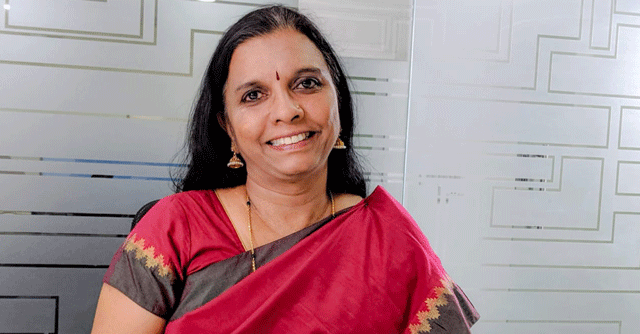
Niramai tests waters for expansion, new use cases for its breast cancer screening solution


The fear of contracting Covid-19 has put on the backburner regular health checkups, including that of breast cancer screenings.
To counter this in a country, where according to the WHO, the disease accounted for 14% of all cancers and claimed over 87,000 lives in 2018, healthtech startup Niramai Health Analytix has developed a home cancer screening solution.
“Over the past three to four months, we saw a decline in screening but now things are getting back to normal,” Dr Geetha Manjunath, CEO of Niramai, told TechCircle.

She founded the startup in July 2016 with former colleague Nidhi Mathur -- they worked at IT services company HP and Xerox Research Centre before setting up Niramai. The company’s $6 million Series A fundraise last year helped the company stay afloat during the pandemic and enabled its expansion through partnerships with healthcare providers.
The company has collaborated with hospital and clinic partners across Bengaluru, Chennai, Hyderabad, Delhi and Mumbai to expand its services to ensure that health screening is not ignored, Manjunath said.
Earlier this week, it announced a partnership with Apollo Clinic to offer its breast cancer detection engine Thermalytix, a contactless and non-invasive procedure, to patients for in-clinic and at-home screening. Niramai holds nine US patents for its thermal imaging-based breast cancer detection platform.

“Apart from Apollo Clinic, we have also partnered with Healthspring chain of clinics in Mumbai. Partnerships are the way to grow the service and we are now focussed on four cities apart from Bengaluru for this,” Manjunath said.
The firm also offers its services in local clinics -- patients can ask their gynaecologist or physician's office to book a test for them.
“Some women may not be comfortable getting the technician home for their checkup because the home lacks privacy or other factors, and may not be willing to go to a hospital due to the current pandemic. They can now access the tests at their convenience,” Manjunath said.

The company has a field operations team and trained technicians at its partner facilities to take accurate thermal images, which are then analysed on the cloud by Niramai’s team of experts.
“We are also looking to expand our services to tier 2 and 3 cities by training homemakers to collect thermal images and offer them a source of income,” Manjunath said.
Niramai works on a pay-per-use model for the breast cancer screening test, with a small capex charged by the company upfront. It currently has 30 installations across hospitals and diagnostic centres in 12 Indian cities.

The startup has collaborated with home health services provider Nightingale and Healthians, apart from online pharmacy 1MG for lead generation, Manjunath said.
While business for the breast cancer detection service dipped, Niramai expanded its expertise in thermal imaging to automate the screening of large groups of people in airports and hospitals for Covid-19 symptoms.
Called the Fever Test, Niramai deploys a high resolution thermal camera to screen temperature and respiratory patterns, and detect whether people are wearing a mask or not, through a livestream that alerts the user in case of an anomaly.

“The Fever Test helped us meet our target revenues and we will continue to look for other diseases where we can apply our technology for diagnosis and screening,” Manjunath said.
The company registered a nearly four-fold year-on-year jump in net sales to Rs 1.5 crore for the financial year ending March 2019, according to data sourced from VCCEdge. The company doubled its expenditure for FY 2019 compared to the previous year, clocking in losses of Rs 1.3 crore after taxes for the period.
